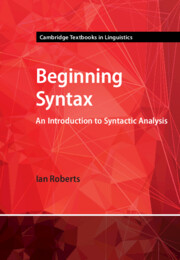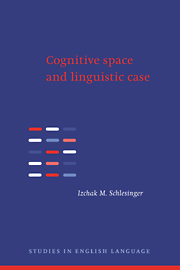Negative and Positive Polarity
In this book, Ljiljana Progovac presents cross-linguistic data on negative polarity, reflexive binding and the subjunctive mood, and proposes a unified analysis for various languages, including English and Serbian/Croatian. She argues that Negative Polarity Items (NPIs), such as 'anyone' and 'ever', are anaphoric in nature and must be bound in their governing category, while Positive Polarity Items (PPIs), such as 'someone' and 'already', are subject to Principle B of the Binding Theory. She also suggests that possible binders (and SUBJECTS) for polarity items are negation or else a polarity operator in the complementiser of questions, conditionals, and other clauses with an unfixed truth-value. Her analysis not only captures many similarities between polarity and anaphora, but also accounts for a number of hitherto unexplained facts about polarity items.
- Only attempt to provide a unified account of positive and negative polarity
- Brings a cross-linguistic perspective to area of polarity
- Considers syntactic as well as semantic conditions in polarity, using Binding Theory
Product details
March 2011Adobe eBook Reader
9780511883507
0 pages
0kg
This ISBN is for an eBook version which is distributed on our behalf by a third party.
Table of Contents
- Preface
- Introduction
- 1. Negative contexts: Serbian/Croatian
- 2. Negative contexts: English
- 3. Non-negative polarity contexts
- 4. Language variation
- 5. Rhetorical questions
- 6. Subjunctive: domain extensions
- 7. Free-choice items
- 8. Ladusaw and Linebarger
- Notes
- References
- Index.





